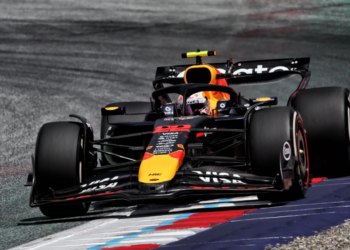McLaren team principal Martin Whitmarsh has hit out at the amount of pay drivers in Formula One at present, and says some of them are “fundamentally not good enough” to be competing.
The amount of so-called ‘pay drivers’ has risen recently thanks to the financial strains put on teams in these difficult economic times. In order to survive, they’re having to turn to those who have significant backing, rather than raw talent.
Whitmarsh described the situation, which is stopping those who have true talent getting to F1, as a “sad” affair.
“I think, personally, it’s sad to have so many pay drivers in Formula One,” he said. “The numbers have crept up, and while I’m sure it’s good and exciting for those that can afford it, you would hope that in the premier form of motorsport worldwide that you wouldn’t have to have pay drivers and that means there are some good young, professional drivers who can’t get in and aren’t getting in.”
Top teams, who can afford to pay their drivers, rarely take on rookie drivers and Whitmarsh says this is part of the problem – teams aren’t willing to take the risk.
“Teams are conservative and don’t take risks and the risks that are taken materialise in instant revenue for the team but don’t materialise in driver potential for the future,” he added.
“It’s sad to say, but the reason that some of those guys are pay drivers, not all of them, but the reason that some are pay drivers is because they are actually and fundamentally not good enough to be in Formula One.”
The 54-year-old does however sympathise with the smaller teams.
“I think it’s difficult in F1 for us to say to some of the teams that you can’t have pay drivers because sadly they have become an important constituent of the budget.
“In the junior categories, having drivers that are around for four or five years because they can afford to be there just clogs up the system. If the top teams had to have a rookie then I think there would be a fight over the good rookies at the bottom and they’d get sucked in because those competitive teams need them and they’d get accelerated through.”






